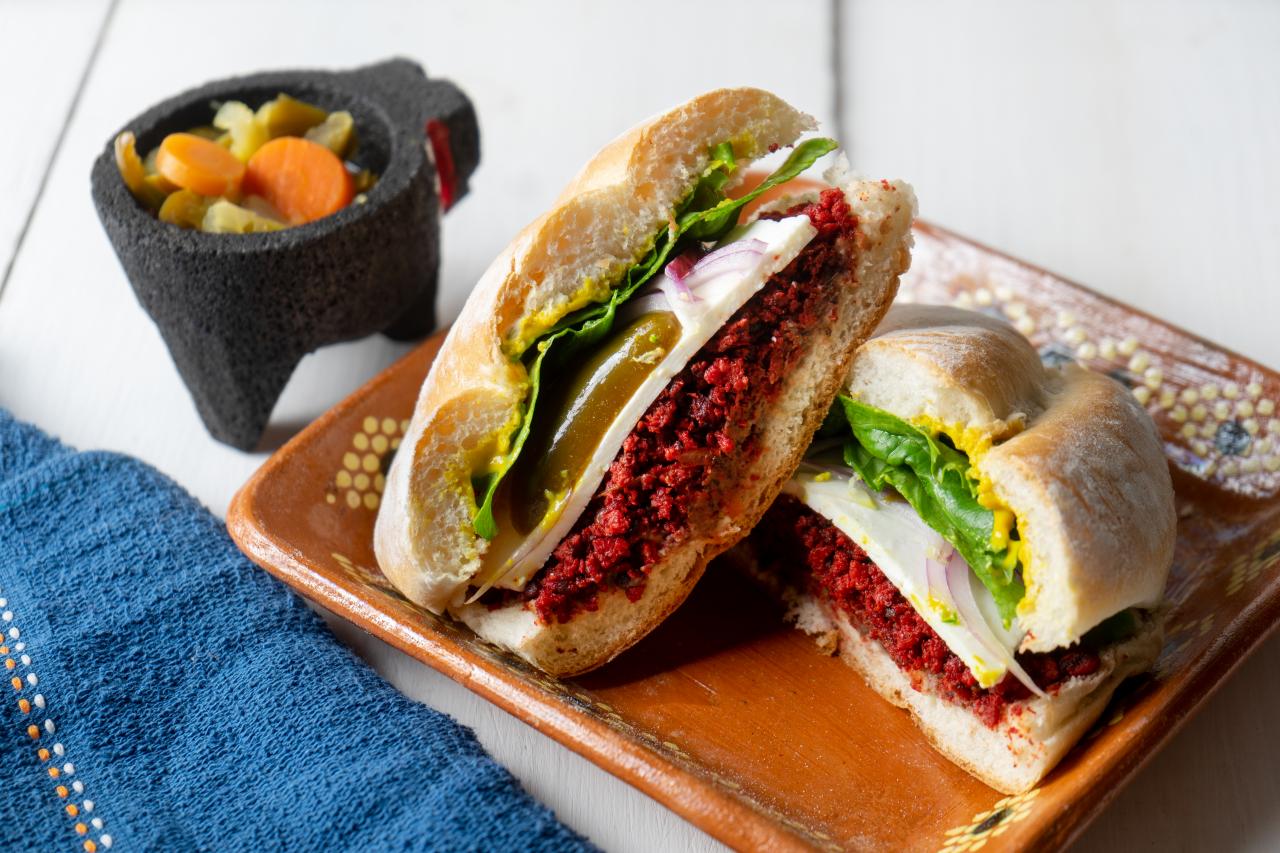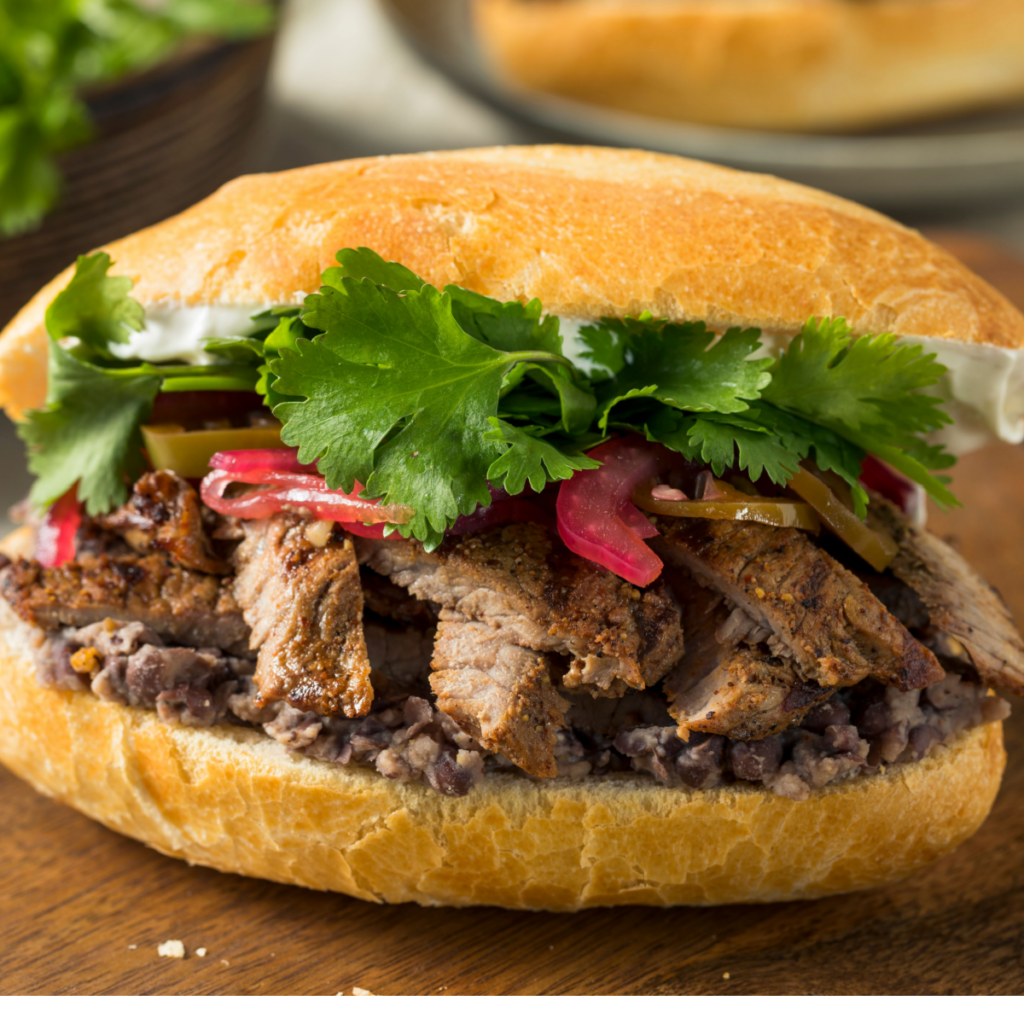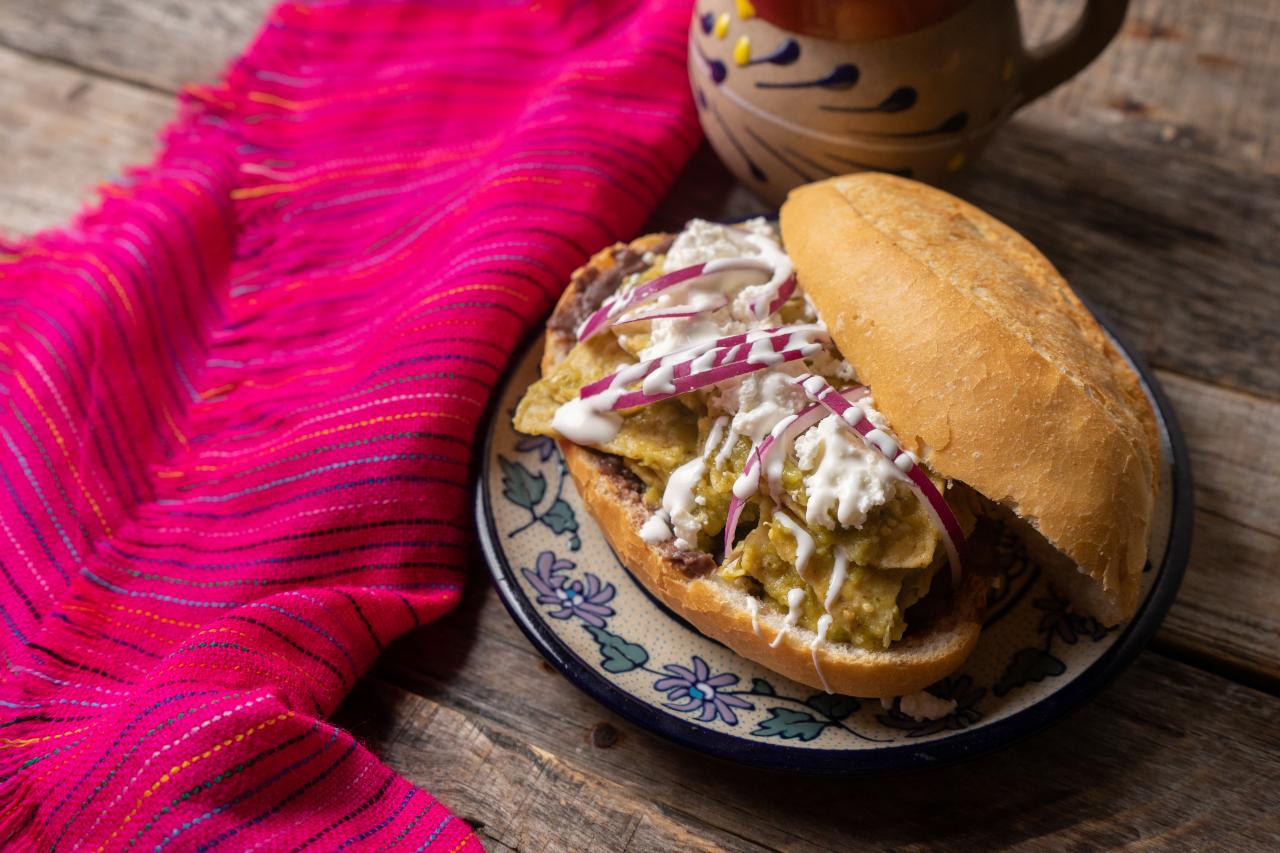Torta Girls - Understanding A Modern Slang Term
The internet has a way of creating new words and phrases, and one that has gained a lot of attention lately is "torta," often used to describe someone as a "torta girl." This expression, in a way, points to a particular type of person, often an overweight or a bit chubby Latina woman. It’s interesting, really, how this term gets its name from a very well-known and much-loved Mexican sandwich. You know, the kind of sandwich that is usually quite hearty and full of good things.
So, when people started using "torta" in this new way, it was almost like drawing a parallel between the sandwich’s generous size and the physical appearance of certain women. It is that kind of word play that often happens online, where something familiar gets a completely different, sometimes unexpected, meaning. The idea, apparently, became quite popular, spreading through various online communities and discussions.
This phrase, "torta girl," began to show up more and more as the 2020s came around. It was very much present in online jokes and popular posts across platforms like TikTok, X (which used to be Twitter), and Instagram, among other places where people share ideas and images. It sort of took on a life of its own, becoming a recognizable part of how some folks talk online, especially when discussing body types or making observations about others, you know.
- How To Make Fleshlight
- What Is The Rarest Hair Color
- Richard Harrison Death Chumlee
- Tony Green Net Worth
- Ella Emhoff Sexuality
Table of Contents
- What's the Story Behind "Torta Girls"?
- How Did "Torta Girls" Become a Viral Idea?
- Is "Torta Girls" a Playful or Hurtful Expression?
- What Does "Torta Girls" Really Mean to People?
What's the Story Behind "Torta Girls"?
The word "torta" has a history that goes back quite a bit, actually. Its roots are in a Latin word, "torta," which meant something twisted. For a very long time, this word described different kinds of food items, like a flat cake or a round loaf of bread. But, as words tend to do, their meanings can change over time. It’s like how language itself keeps moving and changing, so meanings shift along with it, you know.
A traditional torta, as many people know it today, is a Mexican sandwich. It is typically made with a crusty bread roll, perhaps a bolillo, and it is usually filled with all sorts of things. You might find different kinds of meats inside, some cheese, maybe avocado, and a selection of sauces and other toppings. It’s a meal that has a good deal of substance, often quite filling, and, well, really delicious. That sense of something substantial, something hearty, seems to have played a part in how the word got picked up for a new, different kind of meaning, too.
When someone uses the phrase "torta girl," they are generally describing a woman who has a more ample body shape, perhaps someone who is chubby or overweight. The connection often comes from the idea that she might eat a lot of tortas, those big sandwiches. It can be a way of speaking that has a funny, teasing feel to it, or it can be, quite frankly, a bit mean. It just depends on who is saying it and how they are saying it, really.
The term "torta" itself, outside of its sandwich meaning, has gathered a range of slang meanings. These meanings can change quite a bit depending on where you are or what group of people you are talking with. It’s a word that shows how language adapts within different communities. Sometimes it points to someone who might be a little clumsy, or it can even be used in a way that shows affection. It just shows how words can take on so many different shades of meaning, you know, depending on the situation.
The Culinary Connection to Torta Girls
The idea of a "torta girl" is, in some ways, deeply connected to the popular Mexican sandwich itself. This sandwich, known for its generous fillings and satisfying nature, provides the base for the comparison. It’s a bit like taking a well-known food item and using its characteristics to describe a person’s body type. This is a common thing in slang, where everyday items become metaphors for human qualities or appearances, you know.
When someone says a person has a "torta body shape" or is a "pan dulce body type," they are drawing on these familiar food items to create a picture in your mind. "Pan dulce" refers to sweet bread, which often has a soft, rounded appearance. So, these terms are basically using food imagery to talk about a person’s figure. It’s a sort of shorthand that people use, and it helps to paint a picture, though sometimes it is not a very kind one, actually.
The casual use of these terms, like "torta girls" or "pan dulce girls," suggests a shared cultural reference. It means that many people in certain communities understand what is being said without needing a long explanation. It’s a part of how groups talk among themselves, creating their own special language. This kind of language can be very expressive, but it also carries the potential for misunderstanding or hurt, depending on the context and the feelings involved, more or less.
How Did "Torta Girls" Become a Viral Idea?
The idea of "torta girls" really started to spread very quickly in the early 2020s. It was one of those things that just seemed to catch fire online. People were using the term in jokes, in short videos, and in posts that got shared over and over again. It became a kind of inside joke for some, while for others, it was a way to talk about certain body types or social observations, you know.
Social media platforms were the main place where this term gained so much visibility. TikTok, in particular, with its short video format, was a huge factor. People would create humorous skits or quick commentaries using the term, and these would then be seen by millions. X, which was Twitter at the time, and Instagram also played a big part, with memes and images spreading the word around. It’s quite amazing how fast things can move online, really.
The popularity of "torta girls" also came from how easily it could be turned into a meme. A meme is basically an idea or a piece of content that spreads from person to person online, often with slight changes. The term lent itself well to this kind of spread because it was catchy and had a visual reference to the sandwich. This made it very shareable, and it just kept showing up in people's feeds, so it became more and more common, you know.
The way the term "torta girls" became so popular shows how language changes and adapts within online groups. It’s a bit like a living thing, always shifting and taking on new forms. What starts as a simple word can, with enough online attention, turn into a widely recognized piece of slang. This process is happening all the time online, and "torta" is just one example of it, apparently.
Social Media's Role in Spreading "Torta Girls"
Social media platforms have a huge part in how new words and phrases, like "torta girls," become widely known. These platforms are basically giant networks where people share all sorts of content, from short videos to pictures and written posts. When something resonates with a lot of people, it can spread across these networks at a speed that was impossible just a few years ago, you know.
For "torta girls," TikTok was a particularly important place. Its algorithm, which suggests videos to users based on what they seem to like, helped push content featuring the term to a very wide audience. This meant that even if you hadn't heard the term before, you might suddenly see several videos using it in a short amount of time. This kind of exposure makes a word or phrase feel very common, very quickly, you know.
Other platforms, like X and Instagram, also played their part in making "torta girls" a recognizable term. On X, short, text-based jokes or observations using the word could go viral. On Instagram, images or short clips with captions could spread the term visually. It’s a sort of multi-platform approach to spreading a new piece of language, actually, and it really shows the collective power of online sharing.
The way "torta girls" spread across these platforms highlights how interconnected our online lives are. A trend that starts in one corner of the internet can very quickly show up everywhere else. This means that words, even those with potentially hurtful meanings, can become part of common conversation before many people even understand their full implications. It’s a pretty fast process, you know, and sometimes a little hard to keep up with, too.
Is "Torta Girls" a Playful or Hurtful Expression?
The use of "torta" as a slang term for women, especially "torta girls," can be quite a tricky thing. While some people might use it in a lighthearted, teasing way, others find it very offensive. It’s one of those words that carries a lot of weight depending on who is saying it and who is hearing it, and the feelings involved can be quite strong, you know.
When used in a derogatory fashion, the term is basically a way to put someone down because of their body size. It’s like saying someone is too big, and it can carry a sense of shame or ridicule. This kind of language can be very damaging to a person’s self-worth and how they feel about their body. It’s not just a word; it can be a source of real pain, you know.
However, the source material also mentions that "torta" can have humorous undertones or even endearing qualities in some contexts. This suggests that the word isn't always meant to be mean. Perhaps among close friends, it could be used in a playful way, like a nickname. But even then, the line between playful and hurtful can be very thin, and it is easy to cross it without meaning to, apparently.
The various meanings of "torta" as slang, from clumsiness to endearing qualities, show how complex language can be. A single word can have a range of interpretations, and these interpretations are shaped by culture, personal experience, and the specific situation. It’s a good reminder that words have power, and how they are used really matters, you know, especially when talking about people’s bodies.
The Different Ways People Use "Torta Girls"
The phrase "torta girls" can show up in conversations in quite a few different ways. Sometimes, people use it to describe a woman who has a larger body type, without necessarily meaning to be unkind. It might be used as a simple description, much like saying someone is tall or short. But, because of the history of the word and its connection to food, it often carries an unspoken judgment about someone’s eating habits or their size, you know.
Then there are the instances where it is clearly used as an insult. The text mentions that some people on TikTok have been using the Spanish slang word "torta" in a very derogatory way to describe larger Hispanic women. This kind of usage aims to make someone feel bad about their body. It’s a way of criticizing someone’s appearance, and it can be very hurtful, actually.
The term also comes up in discussions about body types, sometimes with a sense of comparison. For example, the text mentions a "size scale" where "tortas" are "one step above gorditas on the size scale (l vs xl)." "Gorditas" also refers to a type of food, a small, thick tortilla, and has also become slang for a chubby person. This kind of comparison creates a hierarchy of body sizes, which can be problematic, you know.
Interestingly, the text also mentions that there are "tortas that exist who are also fine ass chulas." This suggests that even within the slang, there can be a range of perceptions. It means that some people might use the term to describe someone who is larger but still considered attractive or appealing. This adds another layer of complexity to the word, showing that its meaning is not always fixed, but can shift depending on who is using it and their personal views, apparently.
What Does "Torta Girls" Really Mean to People?
For many, the term "torta girls" carries a personal weight, often tied to experiences of body shaming or feeling judged. It’s not just a word; it represents a feeling, a perception, and sometimes, a very difficult moment in someone’s life. The impact of such a term can go quite deep, affecting how a person sees themselves and how they interact with the world, you know.
The text provides a powerful example of this personal impact. A woman shared her experience, saying, "They literally looked at me and said 'no me gusta la torta' which basically means i don’t like the chubby girl." This direct rejection, based on her body shape, caused her considerable distress. She admitted to trying to pretend it didn’t bother her but confessed, "i’ve cried multiple times." This really shows the emotional toll such words can take, actually.
This personal story goes even further, linking the body shaming to other life challenges. She mentions, "Got cheated on and i’m still figuring out how to split things/wtf to do." While the cheating may not be directly caused by the "torta" comment, the timing suggests a period of vulnerability and emotional pain. The feeling of being unwanted or judged for one’s body can make other life difficulties feel even harder to bear, you know.
In an attempt to feel better, she also shared, "Got a haircut to make myself feel pretty yesterday." This act of self-care, trying to improve her appearance, speaks to the desire to reclaim a sense of worth after being hurt. It shows how deeply comments about body image can affect a person’s self-esteem and their efforts to cope with those feelings, you know, even if it’s just a small step like a new hairstyle.
Personal Stories and the Impact of "Torta Girls"
The personal stories connected to "torta girls" truly bring home the human side of this slang. It’s one thing to define a term, but it’s quite another to hear how it has affected someone’s life. The pain of being called "no me gusta la torta" is a very real thing, and it speaks to the broader issue of how people are treated based on their appearance, you know.
This kind of experience often leads to feelings of inadequacy and sadness. The woman’s confession about crying multiple times, even while trying to appear unaffected, highlights the hidden emotional struggles many people face when confronted with such judgments. It is a reminder that words, even if said casually, can leave lasting marks, apparently.
The existence of communities like "thickgirlsneedlovetoo" with 5,000 subscribers, and its purpose as a place for "thick girls only" to "get it," shows a clear need for support and acceptance. These groups arise because people who are targeted by terms like "torta girls" need spaces where they can feel valued and understood. It’s a way for people to find connection and affirmation in the face of negativity, you know.
The phrase "pov ex turned into a torta" or "interpreting tortas in relationships" suggests that the term also pops up in discussions about past partners and relationship dynamics. This can add a layer of humor, but it also shows how body image can become a part of how people view or remember others, even in a playful way. It just goes to show how deeply intertwined language, culture, and personal experiences are, you know, in the way we talk about each other.
The exploration of "torta girls" has touched on its origins as internet slang, drawing from the popular Mexican sandwich, and how it gained widespread recognition on social media platforms like TikTok, X, and Instagram. We have looked at the dual nature of the term, sometimes used in a lighthearted, teasing manner, but often carrying a derogatory and hurtful meaning, especially when describing overweight Latina women. The discussion also covered the historical roots of the word "torta" and its evolving meanings, as well as the various ways people use and interpret the slang in different contexts. Finally, we considered the very real personal impact of being labeled with such a term, highlighting the emotional distress it can cause and the importance of supportive communities for those affected.
- Jonathan Taylor Thomas Wife
- Does Aoc Have A Life Partner
- Taylor Frankie Paul High School
- Mike Connors
- How To Make Her Queef

What Is a Torta? And How to Make a Torta | Cooking School | Food Network

What Is A Torta? (+ Popular Torta Toppings) - Insanely Good

What Is a Torta? And How to Make a Torta | Cooking School | Food Network